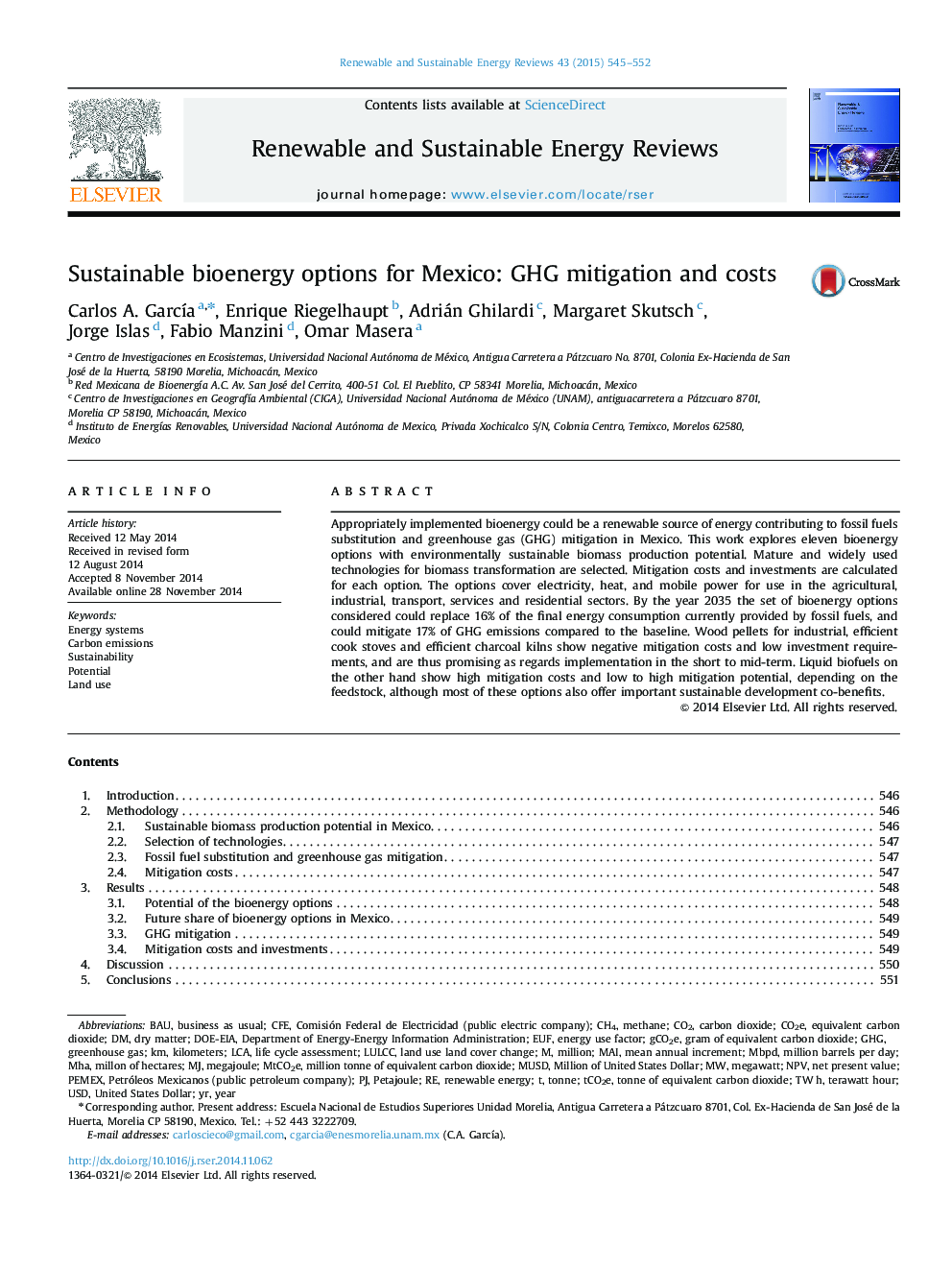| Article ID | Journal | Published Year | Pages | File Type |
|---|---|---|---|---|
| 8117742 | Renewable and Sustainable Energy Reviews | 2015 | 8 Pages |
Abstract
Appropriately implemented bioenergy could be a renewable source of energy contributing to fossil fuels substitution and greenhouse gas (GHG) mitigation in Mexico. This work explores eleven bioenergy options with environmentally sustainable biomass production potential. Mature and widely used technologies for biomass transformation are selected. Mitigation costs and investments are calculated for each option. The options cover electricity, heat, and mobile power for use in the agricultural, industrial, transport, services and residential sectors. By the year 2035 the set of bioenergy options considered could replace 16% of the final energy consumption currently provided by fossil fuels, and could mitigate 17% of GHG emissions compared to the baseline. Wood pellets for industrial, efficient cook stoves and efficient charcoal kilns show negative mitigation costs and low investment requirements, and are thus promising as regards implementation in the short to mid-term. Liquid biofuels on the other hand show high mitigation costs and low to high mitigation potential, depending on the feedstock, although most of these options also offer important sustainable development co-benefits.
Related Topics
Physical Sciences and Engineering
Energy
Renewable Energy, Sustainability and the Environment
Authors
Carlos A. GarcÃa, Enrique Riegelhaupt, Adrián Ghilardi, Margaret Skutsch, Jorge Islas, Fabio Manzini, Omar Masera,
